From overpacking to forgetting travel insurance, some mistakes are easy to avoid with a little preparation. Many travelers exchange money at the airport, stick to rigid itineraries, or ignore essential safety tips, only to regret it later. A little planning can prevent unnecessary stress, wasted money, and last-minute surprises.
This guide covers the costly Travel Mistakes That Could Wreck Your Vacation and how to avoid them. You’ll find practical advice on packing, money management, itinerary flexibility, and security tips that can save you from major headaches. Learn what to watch out for before your next trip and travel with confidence.
#1. Forgetting an Outlet Converter

Electronics have become a necessity while traveling. Phones, laptops, and cameras need to be charged, but power outlets aren’t the same in every country. Many travelers assume their plugs will fit anywhere, only to realize their devices are useless upon arrival.
Airport shops sell converters, but at inflated prices. Buying one beforehand saves money and avoids last-minute stress. A universal adapter is the best choice, as it works in multiple regions. Carrying an extra one is also wise, especially for those who rely on multiple gadgets.
Besides compatibility, voltage differences can also be a problem. Some countries use 110V, while others have 220V. Plugging in without checking could damage electronics. Travelers should always verify voltage requirements and use a converter that regulates power if needed. Taking this small step prevents frustration and keeps devices running throughout the trip.
#2. Flying Into the Cheapest Airport
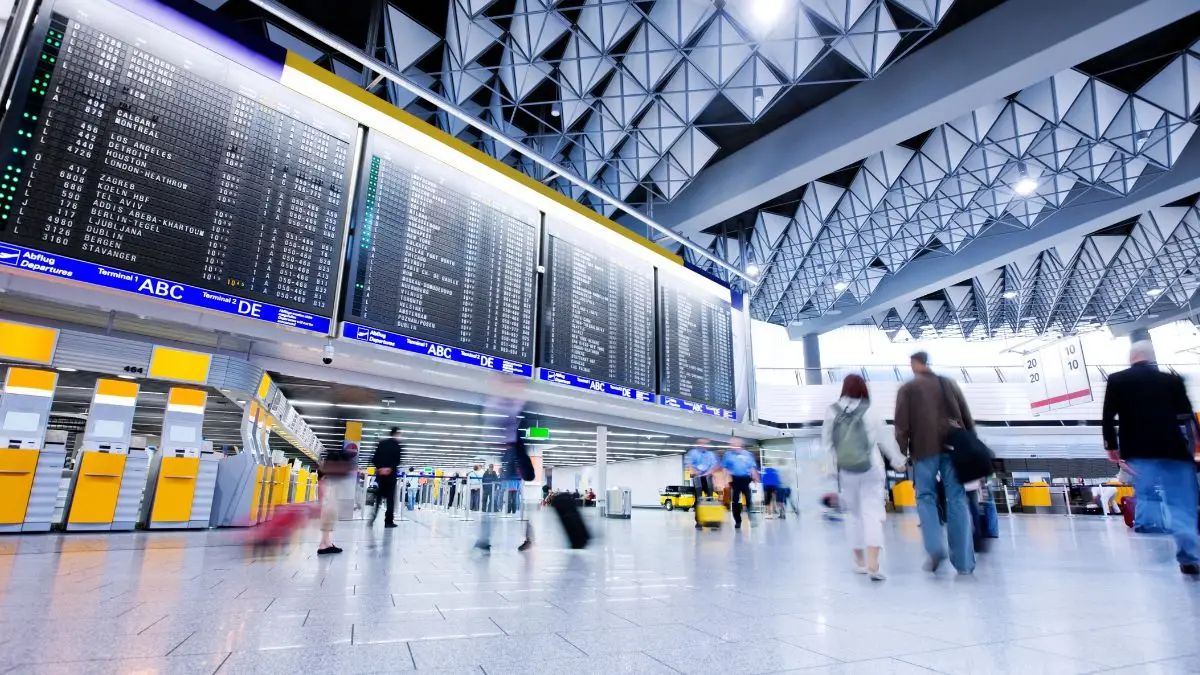
Saving money on flights sounds smart, but choosing the lowest fare isn’t always the best decision. Budget-friendly airports often sit far from major cities, leading to expensive and time-consuming commutes.
For example, many travelers flying to New York choose LaGuardia over JFK to save on airfare. However, LaGuardia lacks a direct train connection and involves costly taxi or rideshare fees. The final cost might end up being higher than a flight to a more convenient airport.
Time is another factor. Some budget airports require long layovers or additional transportation that eats into valuable trip hours. It’s better to calculate the total cost, including transit time and fares, before booking.
Also, not all airports offer the same level of service. Smaller ones may lack lounges, restaurants, or reliable transportation. Spending a few extra dollars on a well-connected airport can make a huge difference in comfort and convenience.
#3. Staying Within Comfort Zones
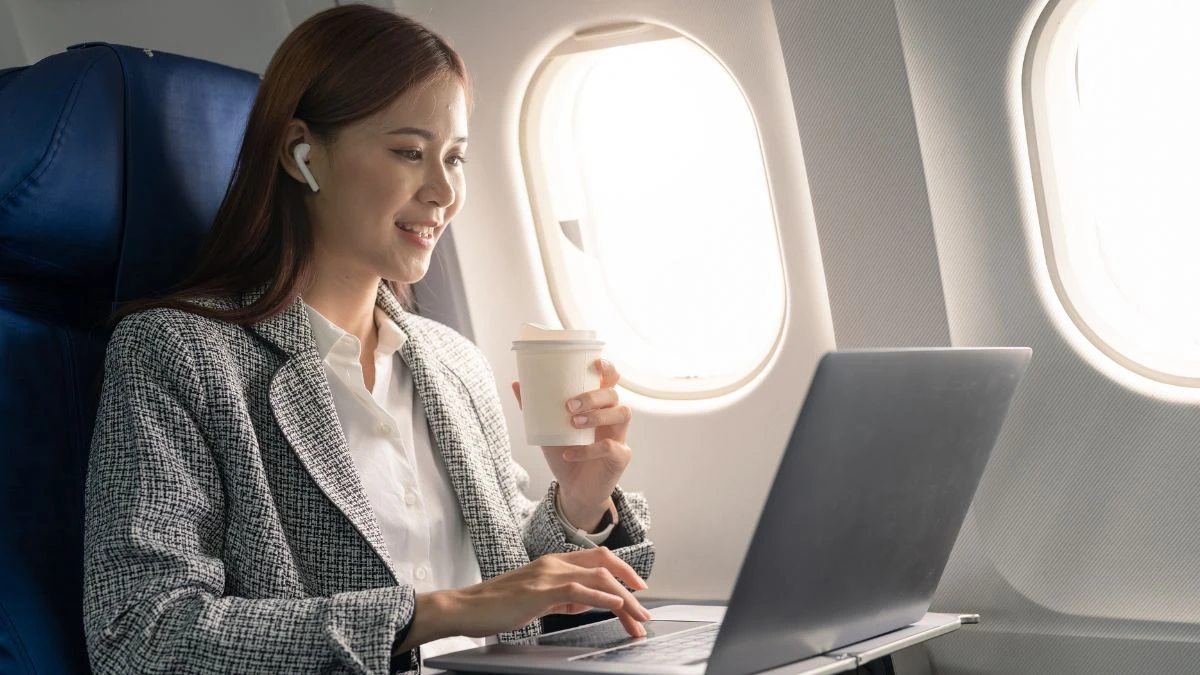
Experiencing a new place means stepping outside of what’s familiar. Unfortunately, many travelers stick to their usual habits, missing out on incredible moments.
Fear often holds people back. Some hesitate to try local foods, avoid unfamiliar activities, or stick to tourist-heavy areas. While comfort feels safe, it limits the adventure. Those who resist new experiences rarely create lasting memories.
A simple mindset shift can change everything. Instead of fearing the unknown, view it as an opportunity to learn. Trying street food, engaging with locals, or participating in cultural traditions enriches the trip. Even small steps, like choosing public transport over taxis, add to the experience.
Group dynamics also play a role. Traveling with someone unwilling to step outside their bubble can limit everyone’s adventure. Open conversations about expectations help avoid conflicts and create room for shared experiences.
Memorable trips come from embracing the unfamiliar. Letting go of hesitation can turn an average journey into something truly unforgettable.
#4. Eating at Tourist Traps

Every city has its famous restaurants, often hyped in travel guides and social media. While they might look tempting, many exist purely for tourists, serving overpriced and uninspired meals.
These establishments know visitors will pay more for convenience and location. Menus feature inflated prices, and the food rarely matches the cost. Locals usually avoid these places, opting for hidden gems with better quality and fair pricing.
Finding authentic cuisine requires a bit of effort. Instead of relying on flashy signs and online ads, look where residents eat. Restaurants filled with locals often serve the best dishes at reasonable prices. Food markets, small family-owned spots, and street vendors usually provide a more genuine taste of the region.
A great way to discover real flavors is by asking hotel staff, tour guides, or even taxi drivers for recommendations. They know where to find delicious meals without the unnecessary markups. A little research can lead to tastier and more affordable dining experiences.
#5. Refusing To Rest

Traveling takes energy, yet many try to pack every minute with activities. The excitement of exploring a new place makes it tempting to skip sleep, but exhaustion quickly catches up.
Running on little rest leads to irritability, poor decision-making, and reduced enjoyment. The body struggles to adjust to different time zones, making jet lag even worse. Instead of experiencing a destination fully, fatigue dulls the excitement.
A well-balanced trip includes downtime. Scheduling rest allows energy levels to stay high throughout the journey. Even short breaks between sightseeing can make a big difference. Rather than treating sleep as an afterthought, travelers should prioritize it just as they would a must-see attraction.
Also, overloading an itinerary can cause unnecessary stress. Spontaneous moments often create the best travel memories, but they’re impossible when exhaustion takes over. Slowing down helps absorb the experience, making the trip more enjoyable and meaningful.
#6. Exchanging Money for Ludicrous Rates

Many travelers rush to exchange money as soon as they land. Airport kiosks seem convenient, but they charge inflated rates. These places make money by offering poor exchange values and high service fees.
Banks and ATMs usually provide better rates. Withdrawing cash from a local ATM saves money compared to exchanging at the airport. It’s wise to carry a small amount of local currency before departure for immediate expenses like transportation.
Planning ahead helps avoid these overpriced exchanges. Checking exchange rates before the trip ensures a fair deal. Some credit cards also offer fee-free international transactions, making them a smarter choice. Being aware of the best money exchange options can prevent unnecessary losses and keep more cash for experiences.
#7. Napping When Landing

Long flights leave travelers exhausted, but sleeping right after arrival causes problems. The body struggles to adjust to a new time zone when rest happens at the wrong time. Sleeping immediately after landing often worsens jet lag, making the first few days sluggish and unproductive.
Pushing through the first day without naps helps the body adjust faster. Staying active, exploring nearby areas, and getting fresh air keep energy levels up. A short coffee break can also help maintain alertness without disrupting sleep patterns.
If exhaustion becomes unbearable, a short 20-minute rest is the limit. Anything longer risks falling into deep sleep, making it harder to wake up. Sticking to the new schedule from day one ensures a smoother transition and more enjoyable trip.
#8. Forgetting to Live in the Moment

Trips often turn into content-creation sessions for social media. Many focus on getting the right photo rather than enjoying where they are. Constantly checking notifications and posting updates distracts from experiencing the destination.
Memories last longer when fully present. Soaking in the sights, engaging with locals, and appreciating surroundings create richer experiences. Photos are valuable, but they shouldn’t take priority over real-life moments.
Social media can wait, but real experiences happen in real-time. A good approach is setting aside specific moments for pictures and then putting the phone away. This keeps a balance between capturing memories and actually living them.
#9. Neglecting Weather Reports

Packing without checking the forecast leads to unnecessary trouble. Many assume the weather will match their expectations, only to arrive unprepared. A warm destination may have sudden storms, while a cooler place could experience unexpected heat.
Checking weather reports before packing avoids last-minute stress. Bringing layers makes adjusting to changing temperatures easier. Unexpected rain or cold nights won’t be a problem with the right preparation.
Seasonal changes can also affect travel plans. Some attractions close during bad weather, and outdoor activities may not be enjoyable in extreme conditions. Knowing what to expect ensures the right clothing and better activity planning.
#10. Not Learning Other Language Phrases

Expecting locals to speak English everywhere is a common mistake. Many countries have limited English speakers, making communication difficult. Simple tasks like ordering food, asking for directions, or using public transport become frustrating without basic language knowledge.
Learning a few key phrases makes a big difference. Greetings, common questions, and emergency words help navigate a new place smoothly. Locals appreciate the effort, often responding with more kindness and patience.
Technology helps, but relying entirely on translation apps isn’t the best strategy. Internet access may be limited, and apps don’t always provide accurate translations. Writing down important phrases or keeping a small language guide offers a backup plan.
#11. Sticking to a Rigid Itinerary
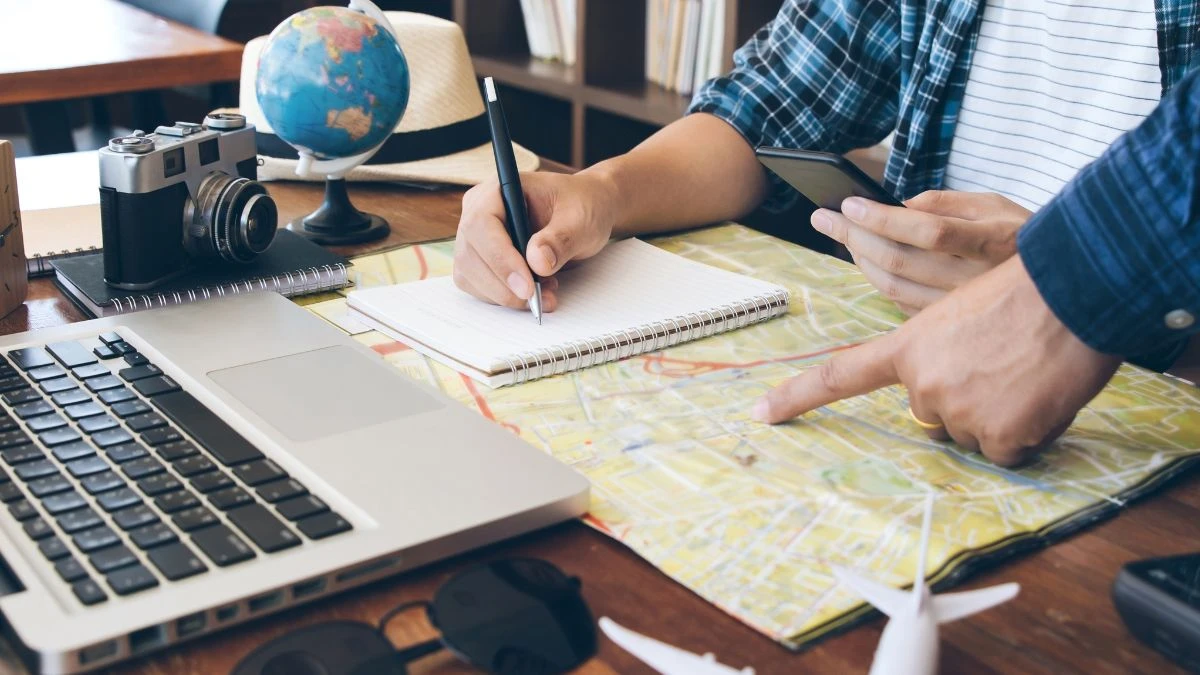
Overplanning kills the joy of traveling. Some people map out every hour of their trip, leaving no room for unexpected discoveries. This approach creates stress instead of enjoyment.
Flexibility makes travel more enjoyable. Strict schedules rarely work, especially when dealing with flight delays, weather changes, or last-minute opportunities. Being open to change allows for spontaneous moments, which often become the best memories.
A loose plan works best. Outline key activities but leave space for breaks, detours, or unexpected finds. A city might have hidden gems that aren’t in any guidebook. Restaurants recommended by locals could be far better than ones planned months in advance. Keeping plans adaptable helps avoid burnout and ensures a trip feels like an adventure rather than a checklist.
#12. No Travel Insurance

Skipping travel insurance seems like an easy way to save money, but one unexpected event can prove otherwise. A missed flight, lost luggage, or sudden illness can lead to unexpected costs. Without coverage, a small problem could turn into a major financial setback.
Medical emergencies abroad can be expensive. Some hospitals refuse treatment without upfront payment, and standard health insurance may not cover international care. Travel insurance helps avoid these risks.
Delays and cancellations happen. A simple weather delay can cause missed connections, extra hotel stays, and additional expenses. With the right coverage, these costs are reimbursed, making disruptions less painful.
A good policy covers medical emergencies, lost baggage, and trip cancellations. The cost is often minor compared to the protection it provides. A few dollars spent on insurance can prevent thousands in unexpected expenses.
#13. Not Telling the Bank About Your Trip

Unexpected card declines can cause major problems while traveling. Many banks flag foreign transactions as fraud, freezing accounts without warning. Trying to make a payment and seeing it rejected is frustrating, especially in an unfamiliar place.
A quick call before departure prevents this issue. Informing the bank about travel plans keeps transactions running smoothly. Many banks also offer online options for setting travel notifications.
Carrying multiple payment options helps. A backup credit card or some cash ensures access to funds even if the main card has issues. Checking international transaction fees before traveling is also smart. Some banks charge high fees for foreign purchases, while others offer better exchange rates.
Avoiding financial trouble abroad starts with simple preparation. Taking a few minutes to notify the bank makes a big difference in keeping the trip stress-free.
#14. Not Packing the Right Shoes
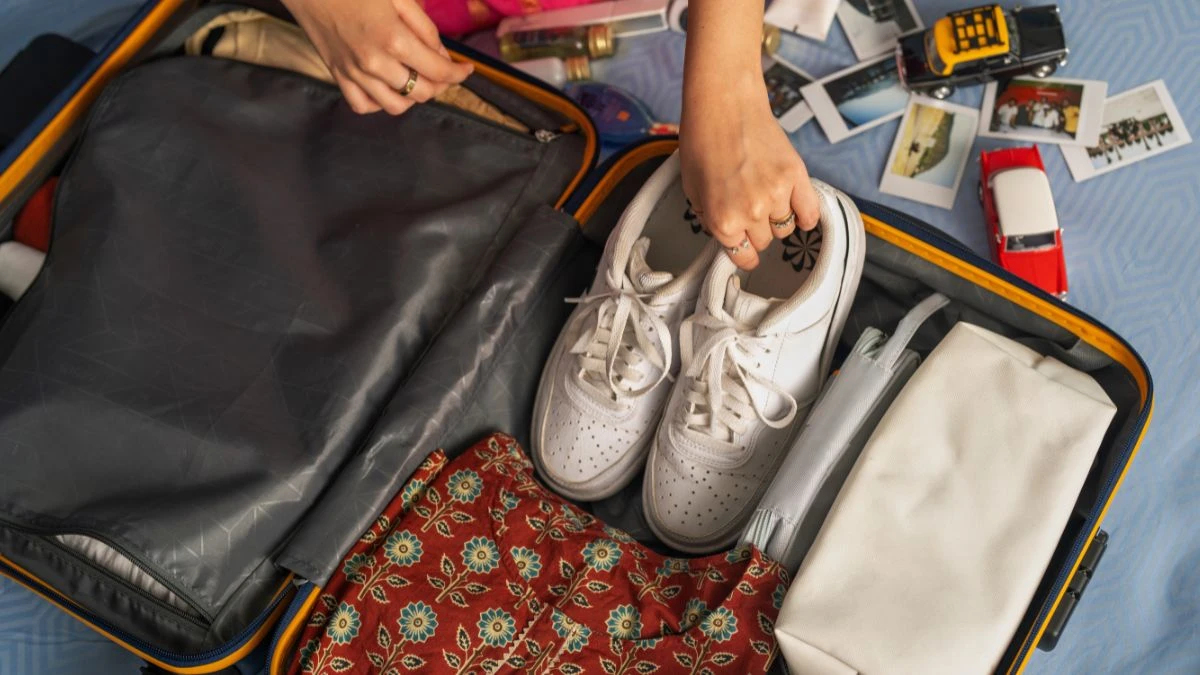
Footwear can make or break a trip. Walking for hours in uncomfortable shoes leads to blisters, pain, and frustration. A stylish pair might look great in photos but can become unbearable after a day of sightseeing.
The best shoes balance comfort and function. Supportive sneakers work well for urban trips, while waterproof options are essential for rainy destinations. Sandals are great for beaches, but they don’t provide enough protection for long walks.
Breaking in new shoes before the trip is a must. Wearing them around the house or for short walks helps prevent discomfort later. Packing an extra pair also helps in case one gets wet or damaged.
Feet take a beating while traveling. Choosing the right footwear ensures the focus stays on the adventure instead of sore, aching feet.
#15. Don’t Keep a Ton of Cash on You

Carrying large amounts of cash is a security risk. Tourists are often targets for pickpockets, and losing money abroad can create serious problems. Credit cards and digital payments offer safer alternatives.
A small amount of local currency is useful. Some places only accept cash for small purchases, transportation, or tipping. Keeping a reasonable amount on hand avoids trouble while reducing the risk of loss.
Spreading money out helps. Keeping some in a wallet, a small amount in a separate pocket, and extra cash in a secure place makes theft less damaging. Money belts or hidden pouches add another layer of protection.
Losing cash means it’s gone for good. Using a mix of payment methods ensures financial security while keeping spending convenient.
#16. Not Packing Valuables in Your Carry-On

Luggage gets lost more often than people think. Checked bags sometimes don’t make it to the final destination, leaving travelers stranded without important belongings. Keeping valuables in a carry-on bag prevents unnecessary panic.
Jewelry, electronics, and travel documents should never go in checked luggage. A missing bag means those items could be lost forever. Having essentials in hand ensures that even if luggage is delayed, nothing crucial is missing.
A carry-on should always have must-haves like chargers, medications, and a change of clothes. Flights get delayed, layovers extend, and plans change. Being prepared keeps these inconveniences from turning into major problems.
#17. Overpacking
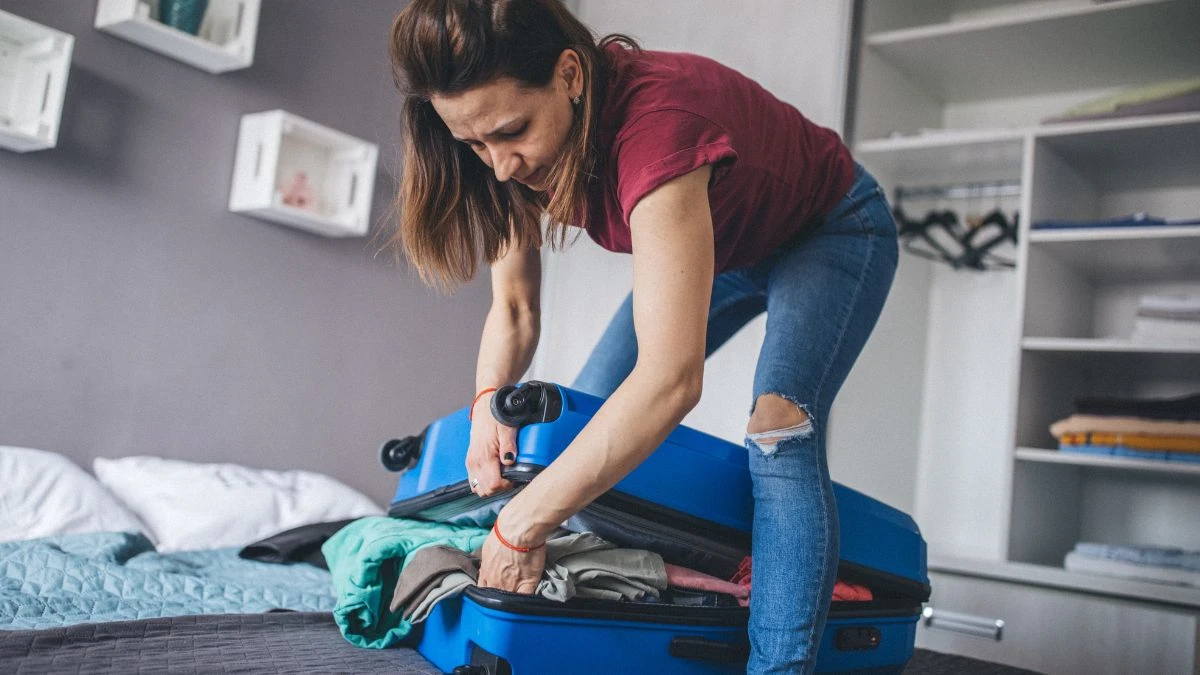
Bringing too much luggage makes travel harder. Heavy bags slow everything down, from airport security to checking into hotels. Dragging around extra weight also makes moving through cities more exhausting.
Many people pack for “just in case” situations, but most of the time, those extra items go unused. A smarter approach is packing versatile clothing that works for multiple occasions. Layering helps adjust to different temperatures without overloading the suitcase.
Lighter bags also mean lower baggage fees. Many airlines charge for overweight luggage, adding unnecessary costs to the trip. Traveling with only what’s needed makes movement easier and the entire experience more enjoyable.
#18. Taking Too Many Photos

Capturing memories is important, but spending an entire trip behind the camera takes away from the actual experience. Constantly snapping photos can make travelers miss the beauty of the moment.
Social media pressures people to document everything, but in doing so, they forget to appreciate where they are. Instead of focusing on getting the right shot, soaking in the surroundings creates better memories.
A few well-thought-out pictures are enough. The best moments often come when the camera is down, and the attention is fully on the experience. Taking a step back allows for deeper connections with the place and the people around.
#19. Drinking the Water

Not all tap water is safe to drink. Many destinations have different purification standards, and drinking contaminated water can lead to serious illness. It’s one of the fastest ways to ruin a trip.
Bottled water is usually the safest choice. Some travelers carry a filtered water bottle to reduce waste while staying cautious. Even brushing teeth with tap water in certain areas can cause problems, so it’s important to check before using it.
Ice cubes can also be an issue. Many places freeze tap water, making drinks unsafe even if the beverage itself is bottled. Asking for drinks without ice helps avoid unexpected stomach troubles.

